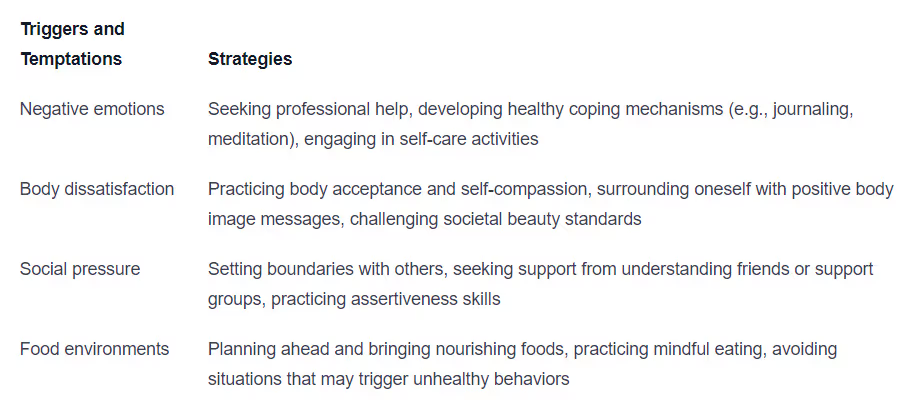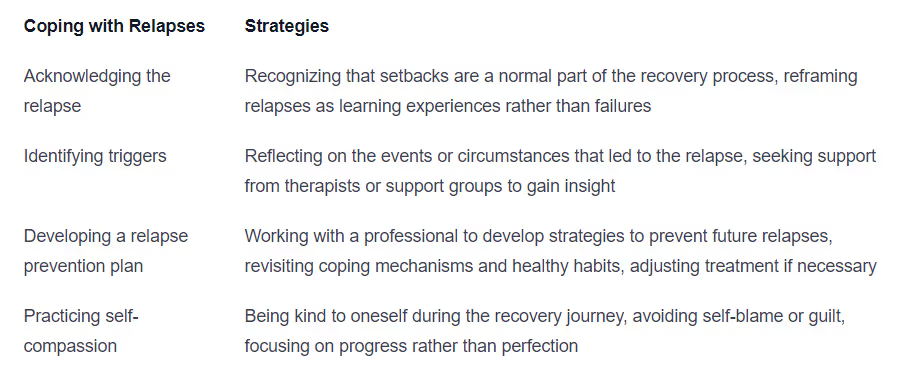Disordered Eating & Dieting

Understanding Disordered Eating & Dieting
Disordered eating and dieting are complex topics that can have a profound impact on mental and physical health. It is important to gain a clear understanding of what disordered eating entails and the consequences of engaging in restrictive dieting.
What is Disordered Eating?
Disordered eating refers to a range of irregular and unhealthy eating behaviors that may not meet the diagnostic criteria for an eating disorder but still have significant negative effects on a person's well-being. It involves a dysfunctional relationship with food, often characterized by extremes in eating patterns, distorted body image, and an unhealthy preoccupation with weight and shape.
Disordered eating behaviors can manifest in various ways, including restrictive eating, binge eating, purging, and excessive exercise. It is essential to recognize that disordered eating exists on a spectrum, with some individuals exhibiting mild symptoms while others experience more severe and chronic patterns.
The Impact of Dieting on Mental and Physical Health
Dieting, often seen as a solution for weight management, can have detrimental effects on both mental and physical health. While dieting may initially lead to weight loss, it can also contribute to a cycle of disordered eating behaviors and negatively impact overall well-being.
Restrictive diets, which severely limit calorie intake or eliminate entire food groups, can disrupt the body's natural hunger and fullness cues. This disruption can lead to an unhealthy preoccupation with food, increased cravings, and a heightened risk of developing disordered eating patterns.
Moreover, chronic dieting and the pursuit of an idealized body image can significantly impact mental health. It can contribute to feelings of low self-esteem, poor body image, anxiety, and depression. The constant focus on weight and appearance can also lead to the development of eating disorders, such as anorexia nervosa, bulimia nervosa, or binge eating disorder.
It is crucial to recognize the potential risks associated with disordered eating and dieting. Seeking support and professional guidance is essential for individuals who are struggling with these issues. By understanding the impact of disordered eating and dieting, we can begin to foster a healthier relationship with food, our bodies, and ourselves.
Signs and Symptoms of Disordered Eating
Recognizing the signs and symptoms of disordered eating is essential for early intervention and support. Disordered eating can manifest in various ways, impacting both physical and mental health. In this section, we will explore three common signs and symptoms of disordered eating: restrictive eating patterns, obsession with weight and body image, and emotional and behavioral changes.
Restrictive Eating Patterns
One of the key indicators of disordered eating is the presence of restrictive eating patterns. This involves severely limiting the amount and types of food consumed, often leading to inadequate nutrient intake. Some common behaviors associated with restrictive eating patterns include:
- Drastically reducing portion sizes
- Avoiding entire food groups
- Engaging in extreme calorie counting
- Adopting rigid and inflexible meal plans
These behaviors can result in nutrient deficiencies, weight fluctuations, and an unhealthy preoccupation with food. It is important to note that disordered eating is not solely defined by the quantity of food consumed, but also by the underlying mindset and relationship with food.
Obsession with Weight and Body Image
Another significant sign of disordered eating is an obsession with weight and body image. Individuals may develop an intense preoccupation with their appearance, constantly striving for an unrealistic ideal. Some common behaviors associated with this obsession include:
- Excessive weighing and measuring of the body
- Constant comparison of one's body to others
- Engaging in extreme exercise routines to control weight
- Frequent body checking and mirror checking
This preoccupation with weight and body image can lead to low self-esteem, negative body image, and a distorted perception of one's own body. It can also contribute to the development of unhealthy behaviors such as excessive dieting and over-exercising.
Emotional and Behavioral Changes
Disordered eating often brings about significant emotional and behavioral changes. These changes can vary from person to person but may include:
- Increased anxiety and depression related to food and body image
- Social withdrawal and isolation due to shame or guilt
- Irritability and mood swings
- Obsessive thoughts about food and eating
- Secretive or ritualistic eating behaviors
These emotional and behavioral changes can have a profound impact on an individual's overall well-being and quality of life. They may also serve as warning signs that professional help and support are needed.
Recognizing these signs and symptoms is crucial in identifying disordered eating and promoting early intervention. If you or someone you know is experiencing these behaviors, it is important to seek professional help and support from healthcare providers, therapists, or registered dietitians who specialize in disordered eating. Remember, recovery is possible, and seeking help is the first step towards healing.
The Road to Recovery
Recovery from disordered eating and dieting is a complex journey that requires support, guidance, and self-reflection. The road to recovery may vary for each individual, but there are common steps that can help pave the way towards healing.
Seeking Professional Help
Seeking professional help is a crucial step in the recovery process. Consulting with a healthcare professional, such as a therapist, counselor, or registered dietitian, can provide invaluable guidance and support. These professionals specialize in treating disordered eating and can help address the underlying causes and develop a personalized treatment plan.
Professionals to Consult
Therapist
Counselor
Registered Dietitian
Building a Support Network
Building a strong support network is essential for recovery. Surrounding yourself with understanding and compassionate individuals can provide encouragement, accountability, and a safe space to share your journey. This support network may include friends, family members, support groups, or online communities where you can connect with others who are on a similar path.
Support Network
Friends
Family Members
Support Groups
Online Communities
Developing Healthy Habits and Mindset
Developing healthy habits and cultivating a positive mindset are vital components of the recovery process. This involves focusing on self-care, nourishing your body with balanced meals, and engaging in regular physical activity that feels enjoyable rather than punishing. It also entails challenging negative thoughts and beliefs surrounding food, weight, and body image, and replacing them with self-compassion and body acceptance.
Healthy Habits and Mindset
Practicing Self-Care
Eating Balanced Meals
Engaging in Enjoyable Physical Activity
Challenging Negative Thoughts
Cultivating Self-Compassion and Body Acceptance
Recovery from disordered eating and dieting is a unique and personal journey. It's important to remember that progress may not be linear, and setbacks can occur. However, with the right support, professional guidance, and a commitment to developing healthy habits and mindset, healing and recovery are possible.
Healing Strategies and Techniques
When it comes to recovering from disordered eating and dieting, there are several strategies and techniques that can aid in the healing process. These approaches focus on developing a healthier relationship with food, body, and self. In this section, we will explore three key techniques: intuitive eating, mindful eating, and body acceptance with self-love.
Intuitive Eating
Intuitive eating is a practice that involves tuning into your body's internal cues, such as hunger and fullness, to guide your eating habits. It emphasizes the importance of honoring your body's needs and preferences without judgment or restriction.
By practicing intuitive eating, individuals can gradually rebuild trust in their body's signals and regain a sense of control over their eating habits. This approach encourages a balanced and flexible approach to food choices, allowing for both nourishing and indulgent foods.
Principles of Intuitive Eating
Reject the diet mentality
Honor your hunger
Make peace with food
Challenge the food police
Discover the satisfaction factor
Respect your fullness
Honor your emotions without using food
Respect your body
Exercise for the joy of movement
Honor your health
Mindful Eating
Mindful eating involves paying full attention to the experience of eating, without judgment or distraction. It encourages individuals to be fully present, savoring each bite and being aware of the taste, texture, and sensations of the food.
By practicing mindful eating, individuals can cultivate a deeper connection with their food and body. This technique promotes a non-judgmental attitude towards eating, fostering a sense of self-awareness and satisfaction. Additionally, mindful eating can help individuals recognize and respond to their body's hunger and fullness cues.
Tips for Practicing Mindful Eating
Eat slowly and savor each bite
Engage your senses: notice the colors, smells, textures, and flavors of the food
Minimize distractions: eat away from screens and focus on the eating experience
Listen to your body's hunger and fullness cues
Eat when you are hungry and stop when you are comfortably full
Be non-judgmental about your food choices
Practice gratitude for the nourishment your food provides
Body Acceptance and Self-Love
Body acceptance and self-love play a crucial role in the recovery process. It involves embracing and appreciating your body for its unique shape, size, and abilities. This approach shifts the focus away from external appearance and promotes self-compassion and self-care.
By cultivating body acceptance and self-love, individuals can develop a positive body image and improve their overall well-being. This includes treating their bodies with kindness, practicing self-care activities, and engaging in activities that bring joy and fulfillment.
Strategies for Body Acceptance and Self-Love
Practice self-compassion: be kind and forgiving towards yourself
Surround yourself with positive influences and supportive individuals
Engage in activities that make you feel good and boost your confidence
Challenge negative self-talk and replace it with positive affirmations
Focus on self-care: prioritize activities that nourish your physical, mental, and emotional well-being
Practice gratitude for your body and its capabilities
By incorporating these healing strategies and techniques into your journey towards recovery, you can gradually rebuild a healthy relationship with food, develop a positive body image, and cultivate self-love and acceptance. Remember, everyone's healing process is unique, so be patient and gentle with yourself as you navigate your own path to wellness.
Overcoming Challenges
Recovering from disordered eating and dieting can be a challenging journey. Along the path to healing, individuals may encounter various obstacles that can potentially derail their progress. In this section, we will explore three common challenges that individuals may face and discuss strategies for overcoming them.
Addressing Triggers and Temptations
Triggers and temptations are factors that can prompt individuals to engage in disordered eating behaviors or fall back into unhealthy dieting habits. These triggers can be internal (such as negative emotions or body dissatisfaction) or external (such as social pressure or food environments). Addressing and managing these triggers is crucial for maintaining recovery.

By identifying individual triggers and implementing appropriate strategies, individuals can navigate through challenging situations and minimize the risk of relapse.
Coping with Relapses
Relapses are common during the recovery process and should not be seen as failures. It is important to approach relapses with self-compassion and view them as opportunities for learning and growth. Coping with relapses involves acknowledging the setback, understanding the triggers or underlying factors that contributed to it, and taking proactive steps to get back on track.

By adopting a compassionate and proactive approach, individuals can bounce back from relapses and continue their journey toward long-term recovery.
Maintaining Long-Term Recovery
Sustaining long-term recovery from disordered eating and dieting requires ongoing effort and commitment. It is important to cultivate healthy habits, build a strong support network, and prioritize self-care to maintain progress.
Consistency in self-care: Prioritizing self-care activities that nurture physical, mental, and emotional well-being (e.g., exercise, relaxation techniques)
Surrounding oneself with support: Engaging in therapy or support groups, seeking understanding and supportive individuals in personal relationships, connecting with online communities
Setting realistic goals: Focusing on realistic and sustainable goals for health and well-being, avoiding rigid or extreme behaviors
Celebrating progress: Acknowledging and celebrating achievements, no matter how small, to boost motivation and self-confidence
By incorporating these strategies into daily life, individuals can increase their chances of maintaining long-term recovery and finding lasting healing from disordered eating and dieting.
Conclusion
Recovery from disordered eating and dieting is a unique journey that requires courage, patience, and self-compassion. It is not a linear process, and setbacks may occur. However, with the right support, guidance, and strategies, healing and long-term recovery are possible.
By recognizing the signs of disordered eating, seeking professional help, building a strong support network, developing healthy habits and mindset, and incorporating healing techniques into daily life, individuals can pave the way towards lasting recovery.
Remember that everyone's journey towards recovery is unique. There may be challenges along the way, but by staying committed to the process and prioritizing self-care and self-compassion, individuals can find hope and healing in their own time.
